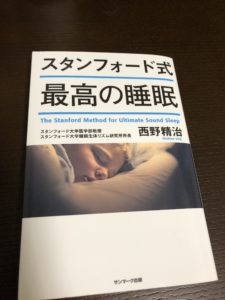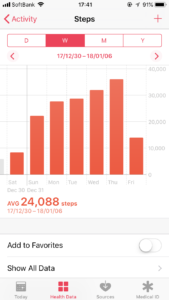Sleep and Travel Stanford Style Best Sleep【17】
Sleep and Travel
I will summarize my thoughts on the relationship between these two.
This book provides various insights about sleep based on the latest research data. What is sleep? How to improve sleep quality? What is the appropriate amount of sleep? What are the effects of sleep?......
It addresses common claims like, is it good to sleep in multiples of 90 minutes? Is caffeine bad for sleep? and so on, providing solid evidence-based perspectives. The most appealing aspect of this book is that it is based on the latest research findings. Published in 2017, it encapsulates the global research accumulated until then. It's recommended for those interested in sleep.

For more details, please read the book. Lol
A consistent message conveyed is that good quality sleep is essential for humans.
If you sleep 8 hours every day, 1/3 of your day is spent sleeping. If this routine continues, 1/3 of your life will be spent sleeping. It may seem obvious, but those who master sleep, master life.
Travel is no exception, and lack of sleep during your trip might halve the fun. You might end up giving up on local delicacies or attractions due to lack of sleep, or in the worst case, fall ill and stay in the hotel.
Honestly, being in a "sleep-able state" is the bare minimum preparation to enjoy a trip. We often hear about sleep deprivation, but not so much about oversleeping. (Excluding sick individuals) Normally, one should be able to get a decent amount of sleep.
However, the likelihood of sleep deprivation increases during travel. The reasons listed below are all from personal experience.
・Jet lag
・Uncomfortable bedding
・Noisy neighbors
・Poor air conditioning
・Insects
・Excitement keeping you awake
・Enjoying the nightlife
You can't sleep, but if you don't sleep, you can't enjoy the trip. What to do?
There's no definitive answer. Please find your own optimal solution.
I can share my own methods to cope. Please understand that individual differences exist and take this as a reference.
As a basic premise in my case, I reduce my sleep hours during travel. What I want to clarify is that "sleep duration" and "sleep quality" do not correlate. (This is elaborated in the book↑.) In other words, it's good to have quality sleep even if the duration is short.
So, how can we improve sleep quality?
①Tire your body out
Humans tend to feel sleepy when their bodies are tired. Remember the classes after physical education during your school days. Especially on days when you had swimming (pool) in the morning, you could sleep well during the first class in the afternoon. Lol
Walking instead of using taxis or trains for short distances, or aimlessly wandering around the city can do the trick. Consciously moving your body more than usual to tire it out is the idea.
In my case, I usually walk around 10,000 steps a day, but during travel, I average over 20,000 steps a day. (I measure this with my iPhone and AppleWatch.) Just walking can burn a considerable amount of calories, and walking twice as much as usual can tire you out more than you think.
The photo shows data from my end-of-year trip to Bangkok. Exceeding 30,000 steps can lightly injure your feet, so moderation is key...

Here is my "Another Sky" - Bangkok!!【4】
②Eat well
① and ② are strongly connected. Moving a lot makes you hungry. So, eat a lot when you're hungry. Everyone might have experienced this, but after lunch, you tend to feel sleepy. Conversely, if you skip dinner and go to bed, hunger might keep you awake. It's better to sleep after eating moderately than to sleep on an empty stomach.
Also, it's a mental thing, but after eating a lot of delicious food and feeling satisfied, it seems easier to fall asleep contentedly.
③Wake up with the sun
Simply wake up when the surroundings get bright. By not using an alarm, you can ensure enough sleep and wake up feeling refreshed. Waking up refreshed improves your performance during the day, which naturally improves the quality of sleep the next night. It might feel strange, but to improve sleep quality, it's necessary to also improve the quality of waking up.
④Consider travel time as non-sleep time
I consider airplanes, long-distance buses, and trains as places where I can't sleep. From personal experience, I've never been able to sleep well in these places. Even if you can sleep, the quality of that sleep is extremely low. Naturally, these places are not designed for sleeping. Ensure to sleep well in bed.
Enjoy the scenery, listen to music, read, watch movies, chat...etc., there are countless ways to pass the time.
Of course, if you can sleep well, then sleep. Also, during long flights, you might be forced to sleep. Even in such cases, understand that the quality of sleep onboard is low. Even if you sleep for several hours onboard, the quality of that sleep is different from your usual sleep.
Sleep should be had at home or in a hotel, either way, ensure to have sleep time on a bed.
⑤Recover from fatigue
I do my best to rest my body. It's natural to feel physically and mentally tired, especially when moving around more in an unfamiliar place. It's good to find the best way for you to recover from fatigue.
In my case, when I want to recover the most, I visit a large bathhouse and get a full-body massage. By not carrying over fatigue, you can enjoy the trip with full energy the next day.
①'s "tire your body out" might seem contradictory, but it has a slightly different meaning. The "fatigue" accumulated in ① remains as an achievement and doesn't disappear. The "recover from fatigue" defined here means to relax and loosen the used muscles, while also obtaining mental relaxation.



